Ditapis dengan
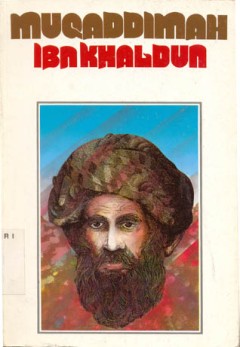
Muqaddimah Ibn Khaldun
Buku ini fokus mengupas alur kemunculan masyarakat dan kebudayaan manusia, termasuk timbulnya kota, politik, perdagangan hingga ilmu pengetahuan.
- Edisi
- -
- ISBN/ISSN
- 979-541-130-6
- Deskripsi Fisik
- v, 846p, ind, 21cm.
- Judul Seri
- -
- No. Panggil
- 909.097671 Kha m
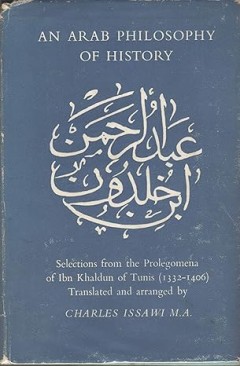
An Arab Philosophy of History : Selections from the Prolegomena of Ibnu Khald…
The Prolegomena of Ibn Khaldun are in many ways the most remarkable manifestation of Islamic philosophical thought. Not only did Ibn Khaldun sum up the accumulated knowledge and leading doctrines of his civilisation, but in many fields he broke new ground and anticipated the findings of Western social scientists of the last two centuries. The passages have been grouped to illustrate Ibn Khaldun…
- Edisi
- -
- ISBN/ISSN
- -
- Deskripsi Fisik
- xiv, 190p
- Judul Seri
- -
- No. Panggil
- -
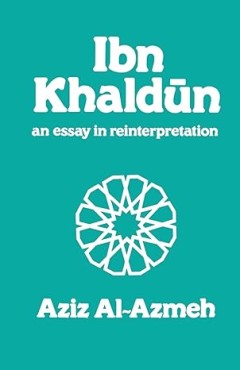
Ibn Khaldun: An essay in Reinterpretation
- Edisi
- -
- ISBN/ISSN
- 0415 03 5988
- Deskripsi Fisik
- -
- Judul Seri
- Arabic Thought and Culture
- No. Panggil
- -
- Edisi
- -
- ISBN/ISSN
- 0415 03 5988
- Deskripsi Fisik
- -
- Judul Seri
- Arabic Thought and Culture
- No. Panggil
- -

(Makers of Islamic Civilization) Ibn Khaldun
Ibn Khaldun (1332-1406) was one of the most remarkable Muslim scholars of the pre-modern period. He founded what he called the science of human society or social organization, as well as a new methodology for writing history and a new purpose for it, namely to understand the causes of events. While his ideas had little impact on the development of Muslim thought for several centuries, they huge…
- Edisi
- -
- ISBN/ISSN
- 978-0198090458
- Deskripsi Fisik
- xii, 160p
- Judul Seri
- -
- No. Panggil
- -
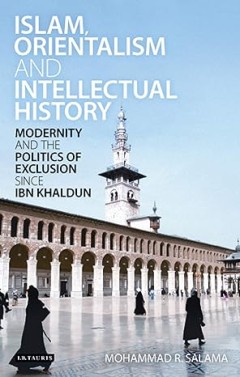
Islam, Orientalism and Intellectual History: Modernity and the Politics of Ex…
As the events and aftermath of 9/11 have shown, the relationship between Islam and the West is deeply troubled. Here Mohammad Salama calls for a new understanding of Islam as a historical condition that has existed in relationship to the West since the seventh century. Salama compares the Arab-Islamic and European traditions of historical thought since the early modern period, focusing on the w…
- Edisi
- -
- ISBN/ISSN
- 978-1848850057
- Deskripsi Fisik
- xiv, 274
- Judul Seri
- -
- No. Panggil
- -
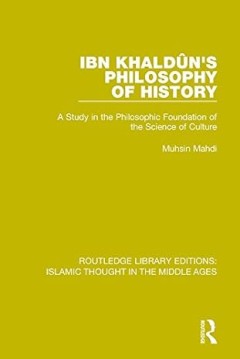
Ibn Khaldûn's Philosophy of History: A Study in the Philosophic Foundation …
This book, first published in 1957, is the study of 14th-century Arab historian Ibn Khaldun, who founded a special science to consider history and culture, based on the philosophy of Plato and Aristotle and their Muslim followers. In no other field has the revolt of modern Western thought against traditional philosophy been so far-reaching in its consequences as in the field of history. Ibn Kha…
- Edisi
- -
- ISBN/ISSN
- 978-1138947245
- Deskripsi Fisik
- iii, 325p
- Judul Seri
- -
- No. Panggil
- -

Muqaddimah Ibn Khaldun
Buku ini fokus mengupas alur kemunculan masyarakat dan kebudayaan manusia, termasuk timbulnya kota, politik, perdagangan hingga ilmu pengetahuan.
- Edisi
- -
- ISBN/ISSN
- 979-541-130-6
- Deskripsi Fisik
- v, 846p, ind, 21cm.
- Judul Seri
- -
- No. Panggil
- 909.097671 Kha m
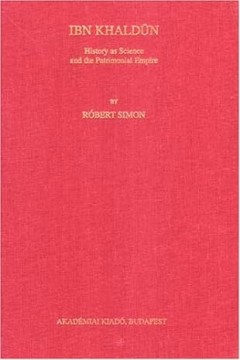
Ibn Khaldun: History as Science and the Patrimonial Empire
Ibn Khaldun was born in Tunis in 1332 and died in Cairo in 1406. In 1995 a thoroughly annotated Hungarian translation of his masterpiece al-Muqaddima (Introduction to History) was published. Simon then capped his 25 years of studying Ibn Khaldun by describing his construction of history as a scientific endeavor, and his elaboration of patrimonial empires, using his own society as a model. Ibn K…
- Edisi
- -
- ISBN/ISSN
- 978-9630579346
- Deskripsi Fisik
- -
- Judul Seri
- -
- No. Panggil
- -
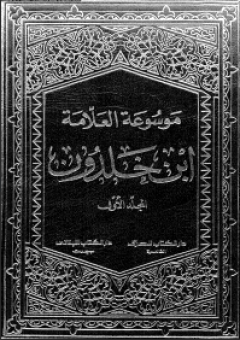
Tarikhu Al-Alllamah Ibnu Khaldun : Kitabu Al Ibar wa Diwan
- Edisi
- -
- ISBN/ISSN
- 977-238-030-7
- Deskripsi Fisik
- viii, 608p
- Judul Seri
- -
- No. Panggil
- -
- Edisi
- -
- ISBN/ISSN
- 977-238-030-7
- Deskripsi Fisik
- viii, 608p
- Judul Seri
- -
- No. Panggil
- -
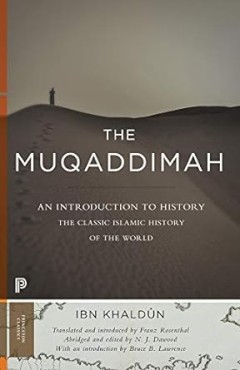
The Muqaddimah Ibnu Khaldun : An Introduction to History
The Muqaddimah, often translated as "Introduction" or "Prolegomenon," is the most important Islamic history of the premodern world. Written by the great fourteenth-century Arab scholar Ibn Khaldûn (d. 1406), this monumental work laid down the foundations of several fields of knowledge, including philosophy of history, sociology, ethnography, and economics. The first complete English translatio…
- Edisi
- -
- ISBN/ISSN
- 978-0-691-16628-5
- Deskripsi Fisik
- 681p
- Judul Seri
- -
- No. Panggil
- -
 Karya Umum
Karya Umum  Filsafat
Filsafat  Agama
Agama  Ilmu-ilmu Sosial
Ilmu-ilmu Sosial  Bahasa
Bahasa  Ilmu-ilmu Murni
Ilmu-ilmu Murni  Ilmu-ilmu Terapan
Ilmu-ilmu Terapan  Kesenian, Hiburan, dan Olahraga
Kesenian, Hiburan, dan Olahraga  Kesusastraan
Kesusastraan  Geografi dan Sejarah
Geografi dan Sejarah